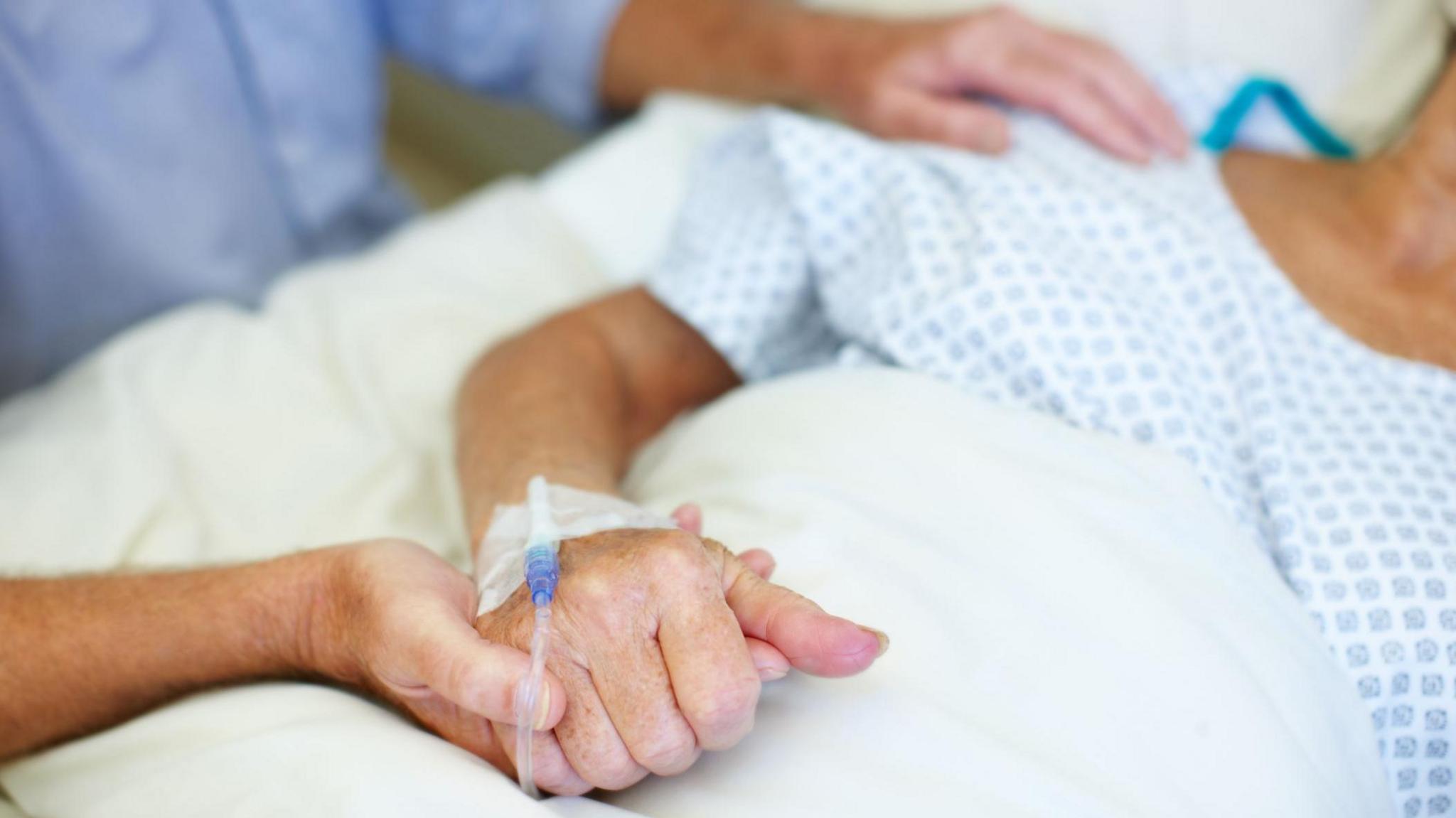Assisted dying bill introduced in Parliament

- Published
A bill which would allow terminally ill adults with six months or fewer to live to get medical help to end their own lives has been introduced in the House of Lords, by former Labour Justice Secretary Lord Falconer.
He told the BBC his bill would apply only to people "mentally able to make the decision".
Their choice would also need to be approved by two doctors and the high court.
Private members' bills introduced in the Lords rarely become law.
However, Lord Falconer says he hopes a backbench MP will introduce a similar bill in the Commons, where it will have a greater chance of success.
Rantzen says she's joined assisted dying clinic
- Published19 December 2023
Starmer sticks by promise of assisted dying free vote
- Published12 July 2024
Assisted dying debate terrifying for disabled, says Liz Carr
- Published7 May 2024
In order to become law, the bill would also need the government to make time for it to be debated - something Prime Minister Sir Keir Starmer has promised to do.
Earlier this month, he also said he would let MPs have a free vote on the subject - meaning they could vote based on conscience rather than following the party line.
Lord Falconer's bill was welcomed by broadcaster Dame Esther Rantzen, who has advanced lung cancer.
Writing in the Express,, external Dame Esther said: "This week, for the first time for over a year, I caught a glimpse of hope... I have dared to look forward."
"What we terminally ill need is to be allowed the hope that if life becomes intolerable, we can ask for help to leave it.
"The law might actually change in time for me to die peacefully at home surrounded by those I love. Suddenly my heart lifted."
Speaking to the BBC Radio 4's Today programme, former Paralympian Baroness Tanni Grey-Thompson said she welcomed a debate, adding: "I think everybody needs to understand the implications of this becoming law".
She said that despite the safeguards, the law could still be "open to a huge amount of abuse".
Appearing on the same programme, Health Secretary Wes Streeting said he was "uncharacteristically undecided" on the subject, but added it was a debate whose "time had come".
He also asked: "Is palliative care in this country good enough so that that choice would be a real choice, or would people end their lives sooner than they wish because palliative care, end of life care, isn't as good as it could be?"
The issue has gained further prominence this year, partly because of Dame Esther's revelation that she had joined Dignitas, the assisted dying clinic in Switzerland.
There was also the case of Antonya Cooper, a mother who admitted giving her terminally ill child a fatally large dose of morphine to end his suffering in 1981.
Ms Cooper made the admission shortly before her own death earlier this month, in an effort to change the law on assisted dying.
Speaking to BBC Radio Oxford, she said: "I totally loved him, and I was not going to let him suffer.
"It was the right thing to do. My son was facing the most horrendous suffering and intense pain, I was not going to allow him to go through that."
A bill to introduce assisted dying was last debated in the House of Commons in 2015, when it was defeated by 330 votes to 118.
More recently there have been moves in Scotland, Jersey and the Isle of Man towards changing the law.
A bill introduced by Lib Dem MSP Liam McArthur will be debated in the Scottish Parliament in the autumn.
In the Isle of Man, a bill was supported at its third reading by two-thirds of the island's parliamentary representatives, known as members of the House of Keys.
It will now be considered by the Isle of Man's Legislative Council.